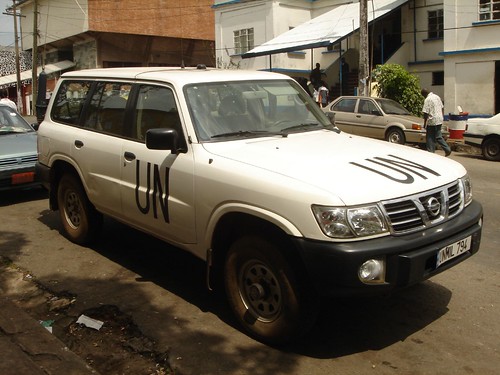
... and because my bike ride home wasn't long enough, get ready for some angry ranting on free trade. I just attended a showing of the film Maquilapolis. One I highly recommend seeing if you get a chance. The film itself was great. It was produced by a group of women in Tijuana Mexico and a few directors from the United States. In beautiful (and disturbing) images and strong narrative it tells the experience of women working in factories on the US/Mexico Border. The film does a great job of showing the agency that the women use to fight corporate and government giants without romanticizing the story, or the poverty. What so enraged me was the discussion afterwards. It is all mezclado en mi cabeza (mixed up in my head) so let me lay out a few points.
FREE Trade is only free for the corporations. the movie did a great job of showing how the North American Free Trade Agreement put companies above both human beings and governments. In the discussion a few clauses were brought up to illustrate this. One is that the companies that bring factories in cannot be held accountable for the development or protection of the surrounding communities. Meaning, there is no responsibility for creating healthy or safe housing/infrastructure/communities for maquiladora workers. Also there is no way to hold the companies accountable for pollution that affects surrounding communities. (Yes there are environmental and labor side accords, but both have proven to be utterly useless) The women in the movie were bound to their $10 a day labor by the need for basic necessities that they still could not afford. NAFTA includes no protection for workers rights or for immigration rights. NAFTA also inhibits government from creating and enforcing certain environmental and labor laws.
So on person made the point that i have so often heard..."Isn't it better that these people at least have job even if they are bad? If the industries weren't there, they would have no jobs at all?" this level of thinking always infuriates me. Lets take the question one step further. Why would the people of Mexico, or China, or Indonesia not have jobs to begin with? Why must they have jobs. We could go back ten years, or thousands of years on this one. The ten year answer for Mexico at least would have to include how NAFTA forced Mexico to open its market to corn grown in the United States. While the US government could afford to subsidize corn production, thus driving down prices, the Mexican government was trying to pay off debt to the IMF. Though the NAFTA agreement had been for a slow introduction of US corn that piece was ignored and soon Mexican markets were flooded with cheap subsidized corn from the United States. This put millions of Mexican farmers out of business, forcing them to leave the country side and flood the urban areas. This created an influx of workers that exceeded demand, thus creating the perfect scene for multinationals to come in and exploit the situation and get cheap labor out of the deal.
Disposability - the above described scenario made workers disposable. I once read a chilling article about maquiladora workers that described how they were comodified and objectified. Women have always been preferred in these factories for their small hands, patience, and passiveness. Younger women are even preferred for their good eyesight. Once these qualities of eyesight, energy and dexterity wear out the women are discarded. Like a machine that no longer functions they are simply thrown out. this was made sadly and poignantly made clear by a series of murders in the late 90s of maquiladora workers.
The other thing that was made clear in the film that only one person was willing to bring up in the discussion was the differing standards we set for US Americans (frequently limited to white, middle class) and people from other countries. It is ok for them to have lower environmental standards, in fact we are going to hold them accountable for it although it helps keep the prices of the things we buy down. And really they should be grateful for those jobs where they are exposed to chemicals, not allowed to drink water or use the restroom and are paid almost nothing. Inherent is the idea that this is all good enough for "them." An idea riddled with racism.
Most frustrating was watching people grapple with how to make this better within the free trade and capitalist framework. One person suggested offering voluntary measures that companies could take to make things better - nice idea except that such a small percentage of companies would volunteer for such a thing. Someone else suggested laws forcing companies to invest more in communities. That might make the system kinder, but it will not change the fact that labor (meaning human beings) and the environment (also affecting human beings and many other things) are considered exploitable and disposable in a world where profit reigns as king. People really sat there scratching their heads trying to figure out how to maintain fair competition for companies while making life a little better for humans. Never mind any equity or fairness for people. I don't claim to have any perfect answers for all of this, but i am convinced that they won't be found in the sacred hallows of free trade.


